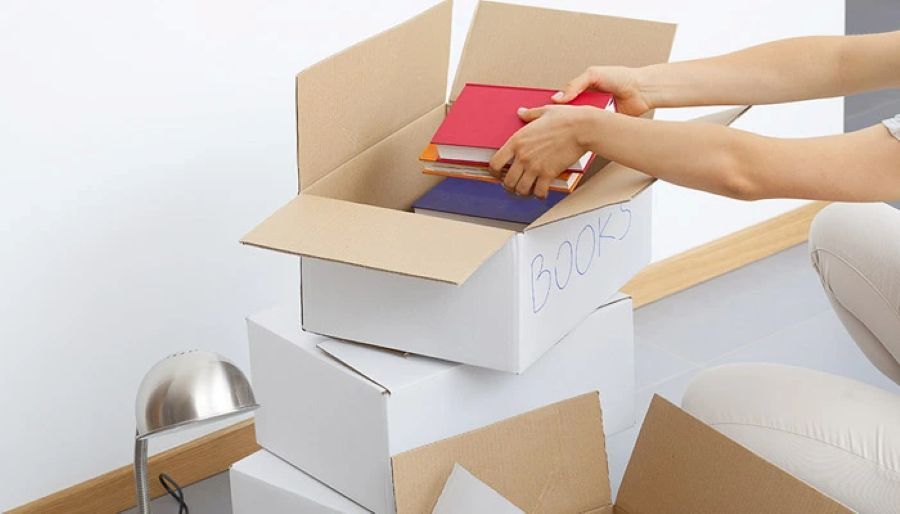What is the Role of a Move Coordinator?
A move coordinator is your personal guide and main point of contact throughout your entire moving journey. They handle all the moving details, keep everything organized, and make sure your move goes smoothly from start to finish. Think of them as the project manager for your move who takes care of the planning so you don't have to worry about it.
This guide will show you exactly what move coordinators do, how they help make moving easier, and why having one can turn a stressful experience into a smooth process. Whether you're moving across town or across the country, understanding their role helps you know what to expect and how to get the most from their services.
What Does A Move Coordinator Do?
Move coordinators wear many hats during your relocation. They act as the bridge between you and all the different people involved in your move - from the packing crew to the truck drivers.
Your Main Point Of Contact
When you hire a professional moving company, they assign you a dedicated move coordinator. This person becomes your go-to contact for everything related to your move. Instead of calling different departments or speaking with multiple people, you have one person who knows your situation inside and out.
According to Move.org, your coordinator is "the primary person responsible for making sure your moving services are scheduled correctly and within your established delivery window." This means if you have questions, need to make changes, or want updates on your move, your coordinator handles it all.
Planning And Organizing Your Move
Move coordinators start working on your relocation as soon as you book your move. They review all the details from your initial survey and create a customized plan that fits your needs.
Here's what they organize:
- Moving dates and timing - They work with your schedule to find the best dates
- Special services - Things like packing help, storage, or handling fragile items
- Equipment needs - Making sure the right trucks and tools are ready
- Crew assignments - Getting the right team for your specific move
Communication Throughout The Process
Good communication is what separates great move coordinators from average ones. Research shows that move coordinators have "over 72 touchpoints with customers during the move process." This might seem like a lot, but it shows how many details go into a successful move.
Your coordinator will:
- Contact you right after you book to confirm details
- Call you before your move date to review the plan
- Check in during your move day to make sure everything is going well
- Follow up after your move to see how everything went
Types Of Move Coordinators
Different types of moves need different expertise. Moving companies often have coordinators who specialize in specific kinds of relocations.
Domestic Move Coordinators
These coordinators handle moves within the same country. Whether you're moving across the street or across the country, a domestic coordinator knows all the rules and processes for relocations within your home country.
They're experts at:
- Local and long-distance moving regulations
- State-to-state requirements
- Timing for cross-country moves
- Working with different local crews
International Move Counselors
Moving to another country involves extra steps that domestic moves don't require. The Federal Motor Carrier Safety Administration (FMCSA) provides guidelines for international moves, noting the additional documentation and regulations involved. International coordinators understand customs rules, shipping requirements, and all the paperwork needed for overseas relocations.
These coordinators "make sure you've got the right documentation for customs clearance during an international relocation" and "ensure that the movers have properly packed and loaded your belongings for seamless export and entry into a new country."
Corporate Relocation Coordinators
When companies relocate employees, they often work with specialized corporate coordinators. These professionals understand business relocation packages and work directly with company HR departments.
They handle:
- Employee benefit packages
- Corporate moving policies
- Business timelines and deadlines
- White-glove service for executives
Military Move Coordinators
Military families have specific rules and processes for their moves. Military coordinators know both domestic and international military moving requirements and work within government contracts.
What To Expect From Your Move Coordinator
Knowing what your coordinator will do helps you prepare and know when to reach out for help.
Initial Contact And Planning
Your moving coordinator should reach out to you "as soon as your move is confirmed, either by phone or email (sometimes both)." During this first conversation, they'll:
- Review your inventory from the initial survey
- Confirm all your moving details
- Answer questions about the process
- Set expectations for timing and communication
Pre-Move Services
In the weeks before your move, your coordinator stays busy behind the scenes. They arrange all the special services you might need and make sure everything is ready for moving day.
Special Service Coordination
If your move needs extra services, your coordinator handles the scheduling:
- Shuttle trucks for moves with difficult access
- Parking permits for big trucks
- Special crating for valuable items like artwork or pianos
- Storage arrangements if needed
Scheduling Confirmation
Your coordinator will contact you "the day before your move to confirm crew arrival on move day" and provide "check-in calls the day of." This helps prevent surprises and keeps everyone on the same page.
Moving Day Support
While your coordinator probably won't be at your home on moving day, they're available by phone if issues come up. They can solve problems quickly because they know your move details and have connections with the moving crews.
Post-Move Follow-Up
After your belongings are delivered, your coordinator isn't done yet. They should "contact you one last time to get your feedback" and can "provide you with the information for filing a claim for lost or damaged items."
This final check helps ensure you're satisfied with your move and gets help if anything needs to be addressed.
Benefits Of Having A Move Coordinator
Working with a professional move coordinator offers several advantages that make the moving process much easier.
Less Stress And Confusion
Moving involves many moving parts - literally. According to the American Psychological Association, moving ranks among the top life stressors, with studies showing that "64% of people say moving is the most stressful experience they've had, even more than major life changes like starting a new job or having kids."
A coordinator reduces this stress by:
- Keeping track of all the details
- Making sure nothing gets forgotten
- Solving problems before they affect you
- Providing clear communication about what's happening
Better Organization
Professional coordinators have systems for managing moves efficiently. They use checklists, schedules, and tracking tools to keep everything organized.
This prevents common moving mistakes like:
- Missing important deadlines
- Forgetting to arrange special services
- Poor communication between different teams
- Scheduling conflicts
Expert Problem-Solving
Move coordinators "know the ins and outs of the moving process, so they can provide expert advice, troubleshoot unexpected issues, and help you feel confident about your moving plan at every stage."
When unexpected things happen - like weather delays or last-minute changes - experienced coordinators know how to adjust plans quickly. They've seen these situations before and have solutions ready.
Time Savings
Instead of spending hours researching, calling different companies, and coordinating services yourself, your move coordinator handles all of this. This frees up your time to focus on other important parts of your move, like saying goodbye to friends or preparing your new home.
How Move Coordinators Work With Moving Teams
Your coordinator acts as the bridge between you and all the different people involved in your move. This includes packing crews, drivers, and local agents in your destination city.
Crew Communication
According to United Van Lines, coordinators start their day early - "6 a.m." - when they "log on to see where my drivers are. Then, I pass that information on to our customers." This early start shows how much work goes on behind the scenes to keep moves on track.
Throughout the day, coordinators:
- Track where moving trucks are located
- Communicate delivery windows to customers
- Coordinate with different crews as needed
- Handle any issues that come up during transport
Service Provider Coordination
Your move might involve more than just movers. Your coordinator works with:
- Packing services
- Storage facilities
- Specialty item handlers (pianos, artwork, etc.)
- Local agents in your destination city
This coordination ensures everyone shows up when they're supposed to and has the right information about your move.
What Move Coordinators Cannot Do
While coordinators handle many aspects of your move, there are some limitations to keep in mind.
Limited Availability
Move coordinators "work regular business hours, which means they aren't generally available early mornings, late evenings, or on weekends." If you have urgent questions outside business hours, you might need to wait until the next business day for a response.
Pricing Changes
Most coordinators "can't negotiate moving costs" because "changes to your final bill are usually not something moving coordinators manage." For significant changes that affect pricing, you'll need to contact your sales representative or the company directly.
Physical Moving Services
Coordinators are the planning and communication experts, not the people who actually move your belongings. They don't:
- Pack or unpack your items
- Drive the moving trucks
- Carry furniture and boxes
Instead, they coordinate with the crews who do this physical work.
The Moving Industry And Customer Satisfaction
TheU.S. Bureau of Labor Statistics reports that the moving industry employs over 6 million individuals as hand laborers and material movers, making it one of the largest industries in the United States. The industry continues to grow, with the market expected to reach "$110.97 billion in 2025 and grow at a CAGR of 5.23% to reach $143.18 billion by 2030." This growth shows how important professional moving services have become.
Technology's Role
Technology has become "an integral driving force in transforming the moving industry" with "innovative digital tools that enhance customer satisfaction and streamline the moving process." The Harvard Business Review has highlighted how companies investing in customer service technology see significant improvements in satisfaction scores. Modern move coordinators use technology to:
- Provide real-time tracking of shipments
- Send automated updates to customers
- Use route optimization for efficient delivery
- Offer virtual consultations and assessments
Focus On Customer Experience
According toConsumer Reports, the moving industry shows "optimistic sentiment, with a strong focus on enhancing the customer experience" where "companies that prioritize customer satisfaction and sustainability are likely to benefit from increased customer loyalty and brand strength."
This focus on customer experience makes the role of move coordinators even more important. They're the human touch that makes sure technology serves customers well rather than creating more confusion.
Questions To Ask Your Move Coordinator
Getting the most from your move coordinator means knowing what questions to ask and when to reach out for help.
Before Your Move
- What's included in my moving package?
- How will you communicate with me during the process?
- What should I do to prepare for moving day?
- Who should I call if I have questions after hours?
- What happens if there are weather delays?
During The Move Process
- Can you give me an update on where my belongings are?
- What's the expected delivery window?
- Are there any delays I should know about?
- Is everything going according to plan?
After Your Move
- How do I file a claim if something was damaged?
- Who can help me with any issues that come up after delivery?
- Is there anything else I need to do to complete my move?
Choosing A Moving Company With Good Coordinators
Not all moving companies provide the same level of coordination service. When choosing a mover, ask about their coordination process.
What To Look For
Dedicated Assignment: Make sure you'll get one specific coordinator rather than dealing with different people each time you call.
Clear Communication Plan: Ask how often they'll contact you and what information they'll provide.
Experience Level: Find out how long their coordinators have been with the company and what training they receive.
Technology Tools: Ask what systems they use to track your move and communicate with you.
Red Flags To Avoid
Be cautious of moving companies that:
- Don't assign specific coordinators to each customer
- Are hard to reach or slow to respond to questions
- Don't provide clear timelines or communication schedules
- Can't explain their coordination process clearly
Working With Edmonton Moving Companies
If you're planning a move in the Edmonton area, working with experiencedlocal movers in Edmonton can provide the personal attention that makes coordination even better. Local moving companies often have coordinators who understand the specific challenges of moving in your area.
For specialized moves, consider companies that offer services likesenior moving orcommercial relocation, as these often require coordinators with specific expertise.
Final Thoughts
A move coordinator is much more than just a customer service representative - they're your moving project manager who makes sure everything happens when and how it should. From the initial planning stages through post-move follow-up, they handle the details so you can focus on the bigger picture of your relocation.
The best move coordinators combine organization skills, communication abilities, and problem-solving experience to turn what could be a chaotic process into a smooth transition. They're worth their weight in gold when you're facing the stress and complexity of relocating.
When choosing a moving company, pay attention to how they handle coordination. Ask questions about their process, meet your assigned coordinator early, and make sure you feel comfortable with their communication style. A great move coordinator can make the difference between a stressful move and one you actually look back on positively.
Ready to experience stress-free moving with professional coordination? Contact a reputable moving company today to learn about their coordination services and start planning your smooth relocation.



